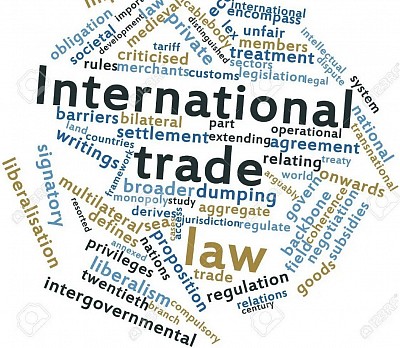Areas of expertise
What makes escrow credible
Escrow accounts are considered credible and trustworthy due to several factors: Neutrality and Impartiality: The escrow agent, typically a trusted third party such as a financial institution or an attorney, acts as an impartial intermediary between the parties involved in the transaction. Their role is to facilitate the transaction and ensure that the terms and conditions are met by both parties without favoring either side. This neutrality helps establish trust and credibility in the escrow process.
Security of Funds or Assets: Escrow accounts provide a secure mechanism for holding funds or assets during a transaction. The funds or assets are held by the escrow agent, who is responsible for their safekeeping until the predetermined conditions are met. This helps mitigate the risk of fraud or misappropriation, providing a level of security to both parties involved.
Compliance with Legal and Regulatory Requirements: Escrow agents are often regulated by specific laws and regulations that govern their operations. These regulations are in place to ensure that the escrow process is conducted ethically, transparently, and in compliance with the applicable legal requirements. The oversight of regulatory authorities adds credibility to the escrow arrangement.
Professional Expertise: Escrow agents are professionals experienced in handling escrow transactions. They possess the necessary knowledge and expertise to manage the process effectively. Their understanding of legal requirements, financial procedures, and risk management ensures that the transaction proceeds smoothly and securely.
Documentation and Transparency: Escrow accounts involve clear documentation outlining the terms and conditions of the transaction. This includes the agreement between the parties and any legal documents associated with the transaction. The escrow agent ensures that all parties have access to relevant information and documentation, promoting transparency and reducing the chances of misunderstandings or disputes.
Track Record and Reputation: Established escrow agents or companies with a positive track record and reputation for conducting successful escrow transactions build trust and credibility over time. Recommendations, reviews, and references from previous clients can provide assurance to parties entering into an escrow arrangement.
It is essential to conduct due diligence and choose a reputable escrow agent or company to ensure credibility and reliability throughout the escrow process.
The good news is there is a relatively easy way to thwart the scammers: an escrow account.
Escrow is a legal arrangement in which a third party holds and regulates payment of the funds required for two parties involved in a transaction. It is commonly used in real estate transactions, but it can also be used for other types of transactions, such as online purchases or business deals.
The third party, known as the escrow agent, holds the funds until the terms of the transaction have been fulfilled. Once both parties have fulfilled their obligations, the escrow agent releases the funds to the appropriate party. This arrangement helps to ensure that both parties fulfill their obligations and that the transaction is completed as agreed upon.
One of the biggest things all scammers rely on is that you will be acting alone with your own money. That’s why it’s very rare for a dealership to get scammed even though they buy countless vehicles from the private market every day of the year. Using an escrow service gives you trusted and knowledgeable third party help to ensure every step of the process goes smoothly.
The great thing about this option is that just the act of using it tends to ward off any potentially nefarious actors. They know it will be nearly impossible for them to get around the escrow process and therefore move onto other options.
Using an escrow account is important for several reasons:
Advising on acquisitions and divestitures, specifically of non-listed target companies, has been a cornerstone of our legal advisory for decades. We support all types of cross-border M&A transactions with all their facets.
Our advice begins with the preliminary strategic considerations and planning, also with a view to the anti-trust aspects, as well as with initial discussions with potential buyers, moves on to the structuring of the purchase or sale including carve-out (as an auction or as an exclusive process with a prospective bidder), preparing the necessary documentation and conducting negotiations, then finishes with the successful closing. Integrated teams made up of M&A and capital markets specialists also provide comprehensive advice on dual-track processes and all the specific issues relating to them.
Acquisitions and divestitures are two common strategies used by businesses to restructure their operations or expand their market presence.
Acquisition refers to the process of one company buying another company or a part of it. The acquiring company typically takes control of the acquired company's assets, employees, and operations, and becomes responsible for its liabilities. The goal of an acquisition is usually to expand the acquiring company's market share, increase its competitiveness, or gain access to new technologies, products, or markets.
On the other hand, divestiture refers to the process of selling off a company or a part of it. The divesting company typically receives payment for the assets it sells and may use the proceeds to pay off debt, invest in new ventures, or return capital to shareholders. The goal of divestiture is usually to reduce costs, streamline operations, or focus on core business activities.
Both acquisitions and divestitures can be complex and involve various legal, financial, and operational considerations. They require careful planning, due diligence, and negotiation to ensure that they create value for the parties involved.
Private Equity Transactions
Beke law firm advises financial investors including family offices on all legal and tax aspects of the complete spectrum of investment or divestment alternatives like leveraged buy-outs, management buy-outs, management buy-ins, and similar types of strategies, as well as public takeovers, take-private transactions, and acquisitions of minority interests. A special focus of our legal advisory services is on large-cap transactions. We also advise on a variety of complex mid- and small-cap transactions.
Private equity transactions involve the purchase of privately-held companies by private equity firms or investors. These firms raise capital from institutional investors such as pension funds, endowments, and high net worth individuals, and use the funds to acquire companies with the goal of increasing their value over time and eventually selling them for a profit.
Private equity transactions can take various forms, including leveraged buyouts (LBOs), growth capital investments, and venture capital investments. In an LBO, the private equity firm borrows a significant amount of money to finance the acquisition of the target company and uses the company's cash flows to repay the debt. Growth capital investments are used to fund the expansion of established companies, while venture capital investments are used to fund early-stage companies with high growth potential.
Private equity firms typically take an active role in managing the companies they acquire, often appointing their own executives to key positions and implementing operational improvements to increase efficiency and profitability. The firms typically hold the companies in their portfolios for several years before selling them, either through a public offering or to another buyer.
Private equity transactions can be highly profitable for investors, but they also involve significant risks, including the possibility of the target company not meeting performance expectations, changes in market conditions, and regulatory and legal risks.
Foreign Trade Law
As a full service firm, our firm advises on a wide range of foreign trade issues, drawing on its multidisciplinary team to provide seamless, integrated service across various industry sectors. The practice comprises experts who specialize in public business law (including export controls, dual use, sanctions/embargoes, customs and military weapons control regulations), antitrust and corporate/tax. Our foreign trade practice not only counsels and represents clients in foreign trade matters before the competent authorities, but also advises in the implementation of export control related compliance systems. Further, we offer transaction-related assistance on M&A deals on matters of export and investment controls. As a result, our team makes use of its experience and excellent contacts with the competent authorities for the benefit of foreign clients, in particular.
Foreign trade law is a set of regulations and policies that govern the trade of goods and services between countries. It encompasses a wide range of issues, including tariffs, quotas, trade agreements, investment, intellectual property, and dispute resolution.
Foreign trade law is essential in facilitating international trade and ensuring that it is conducted in a fair and transparent manner. It seeks to promote free and open trade by removing barriers to trade and creating a level playing field for all participants. However, foreign trade law can also be used to protect domestic industries and promote national security interests.
Foreign trade law is typically enforced by government agencies, such as customs and border protection, trade commissions, and courts. These agencies are responsible for ensuring that companies comply with trade regulations, investigating violations, and imposing penalties for non-compliance.
Foreign trade law is constantly evolving, as governments negotiate new trade agreements and respond to changing economic and geopolitical conditions. As such, it is important for businesses engaged in international trade to stay abreast of changes in foreign trade law and to seek expert legal advice to ensure compliance with applicable regulations.
Foreign Investment Control
Beke law firm leading practice advises on all aspects of foreign investment control. This includes minimizing the risks involved in foreign investments by German companies or national controls of foreign investments in Germany, as well as the coordination of official review procedures worldwide.
Our expertise is called upon on a regular basis for large volume and highly complex transactions which frequently receive significant public interest.
Foreign investment control refers to the regulation and oversight of foreign investments in domestic companies or assets by a country's government. It aims to protect national security, economic interests, and other public policy concerns by assessing the potential risks associated with foreign investments and imposing conditions or restrictions on those investments when necessary.
Foreign investment control can take various forms, including screening, review, and approval processes. Screening is the initial stage in which the government assesses the potential risks associated with a foreign investment and determines whether it warrants further review or approval. Review involves a more detailed assessment of the potential risks and benefits of the investment and may result in the imposition of conditions or restrictions on the investment. Approval involves granting permission for the investment to proceed, often subject to certain conditions or requirements.
Foreign investment control is typically implemented through laws and regulations that establish the criteria for assessing foreign investments and the procedures for screening, review, and approval. These laws and regulations may apply to specific industries or sectors that are considered to be of strategic importance, such as defense, energy, or critical infrastructure.
Foreign investment control can have significant implications for foreign investors and domestic companies alike. It can affect the feasibility and cost of foreign investments, the structure of corporate transactions, and the competitiveness of domestic industries. As such, it is important for businesses engaged in cross-border transactions to understand the regulatory framework for foreign investment control in the countries in which they operate and to seek expert legal advice when necessary.
Embargoes
In markets which are limited by legal regulations or which open up again, we provide our clients with practical and legally sound solutions in order to recognize and develop potential business opportunities and assist them in the drafting of contracts.
Our experts have extensive experience and outstanding know-how in contractual negotiations relating to Iran, Russia, as well as the U.S., and they know what really matters when it comes to transactions with contractual partners in these countries. Here, our team works closely with American lawyers in particular, since embargo issues frequently interface with US export control laws.
Embargo laws can have significant implications for businesses engaged in international trade. They can restrict access to markets and supply chains, increase transaction costs and risks, and limit the ability of businesses to pursue certain opportunities or partnerships. As such, it is important for businesses to understand the regulatory framework for embargoes in the countries in which they operate and to seek expert legal advice when necessary.
The legality and enforcement of embargoes are governed by international law, including the United Nations Charter, which prohibits the use of force against other states and allows for sanctions and other non-military measures to maintain international peace and security. The World Trade Organization also has rules governing the use of trade restrictions and embargoes among its member countries.
Individual countries also have their own laws and regulations governing the imposition of embargoes, including the United States, which has extensive regulations governing trade with certain countries, such as Cuba, Iran, North Korea, Sudan, and Syria.
Overall, embargoes are a powerful tool used by governments to influence international trade and political relationships. They can have far-reaching economic and political consequences, and it is important for individuals and businesses to understand the applicable laws and regulations when conducting business with countries subject to embargoes.
Customs
We assist clients operating abroad so that they can trade securely on the strictly regulated European market. We advise and represent them on all customs-related matters, for example in connection with customs permits, as well as across practice groups in customs-related compliance matters.
Our international network of independent, leading law firms enables us to handle any problems involving customs law that might arise – across borders and without complications.
Customs law refers to the laws and regulations governing the movement of goods across international borders, including the import and export of goods, and the collection of customs duties and taxes.
Customs laws are designed to regulate and facilitate international trade, while protecting public health, safety, and security. Customs laws may cover a range of issues, including:
Tariffs and trade agreements: Customs laws may set tariffs (taxes on imported goods) and regulate trade agreements between countries. They may also specify rules of origin for goods, which determine the country of origin for customs purposes.
Import and export controls: Customs laws may regulate the import and export of certain goods, such as firearms, drugs, or endangered species. They may also require permits, licenses, or certifications for certain goods or services.
Customs procedures: Customs laws may specify the procedures for clearing goods through customs, including the submission of customs declarations and the inspection of goods.
Valuation and classification of goods: Customs laws may specify how goods are valued and classified for customs purposes, which can affect the amount of customs duties owed.
Intellectual property rights: Customs laws may provide for the protection of intellectual property rights, such as trademarks, copyrights, and patents, and may prohibit the import or export of infringing goods.
Customs laws vary by country and jurisdiction, and may be enforced by customs authorities or other government agencies. Noncompliance with customs laws can result in penalties, fines, and other legal consequences, and can also impact trade relationships and reputations.
Overall, customs law is an important area of international trade law, and individuals and businesses engaged in cross-border trade should be aware of the applicable customs laws and regulations in their jurisdictions to ensure compliance and avoid legal and financial risks.










